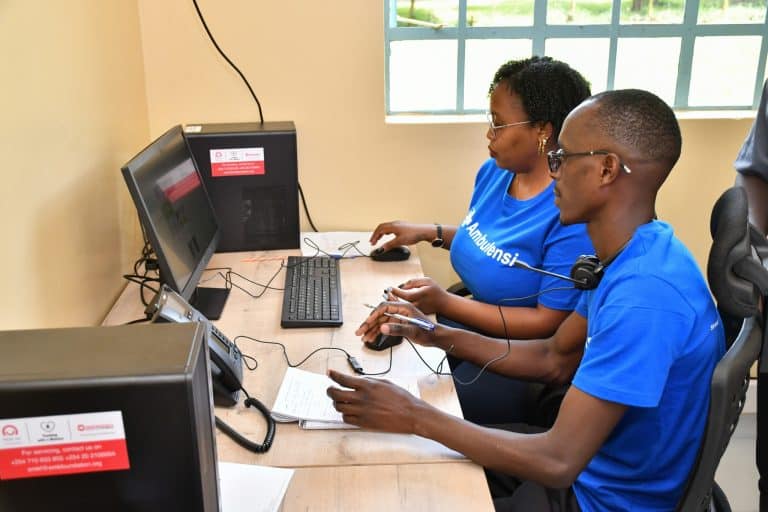HMIS Kenya SHIF Compliance: Beyond Accounting Software
Introduction
Compliance remains a critical part of hospital operations, helping teams balance financial accuracy with timely patient care. Accurate claims, secure patient records, and transparent audit-ready trails are essential. When these systems fail, patients experience delays, billing disputes, and uncertainty about coverage.
Yet many hospitals still rely solely on accounting software. While these tools serve as basic ledgers, they cannot function as comprehensive hospital compliance systems. Meeting the demands of the SHIF claims process goes beyond ledgers; it calls for HMIS solutions built for Kenya’s compliance standards. When systems stop at the ledger, hospitals see revenue slip away, claims fall through, and compliance turn from safeguard to liability.
1. Limits of Accounting Software in Hospitals
- No Link to Patient Care
Accounting tools show what was billed, but not whether that bill reflects treatment actually delivered. Consultations here, lab results there, pharmacy elsewhere – yet finance connects with none of them. When data sits in silos, errors multiply. Patients may be billed incorrectly, or claims may be rejected because insurers cannot reconcile care with charges. - Compliance Blind Spots Under SHIF
Auditors require more than numbers. They need a complete record showing care delivered, services billed, and claims submitted at every step – so patients aren’t left facing delays or billing confusion. With accounting-only setups, hospitals resort to manual reconciliations – slow, error-prone, and incomplete. The result? Vulnerability to penalties, delayed reimbursements, and compliance gaps. - Why Hospitals Need a Decision Support System, Not Just Spreadsheets
Balance sheets reveal the past, but they don’t provide forward-looking insights. Accounting software won’t show if outpatient clinics are overwhelmed, if claims are stuck in backlog, or if a single department is driving unexpected costs. In an era where SHIF compliance and efficiency matter equally, hospital leaders need a hospital decision support system – not just numbers on a spreadsheet.
Scenario: A finance officer is summoned to explain why 20% of outpatient claims were rejected. The accounting system shows unpaid balances. Without links to treatment records, there is no proof. Revenue is lost. Compliance is questioned. Patients wait, unsure if treatment will proceed on time.

The Case for SHIF-Compliant HMIS Solutions in Kenya
Accountability Through Audit Trail Software
An HMIS like MedicentreV3 integrates clinical, financial, and operational data into one platform. Every transaction is linked to patient files, departmental workflows, and insurance claims, creating a complete audit-ready trail. Compliance audits transform from frantic scrambles into transparent demonstrations of accountability.
Real–Time Dashboards for Better SHIF Compliance
MedicentreV3 provides real-time reporting tools that show pending claims, patient volumes, and revenue trends. Managers can:
- See which claims are at risk of rejection.
- Forecast demand by monitoring ward and clinic capacity.
- Identify bottlenecks before they become compliance failures.
One alert might reveal claims worth KShs. 3 million pending submissions. A proactive manager can act immediately, preventing delays and rejected claims.
Patient Data Protection in Kenya: Why Security Matters
Compliance without security is incomplete. SHIF submissions involve sensitive personal information that must be safeguarded under Kenya’s Data Protection Act. MedicentreV3 ensures patient data protection in Kenya through encrypted submissions, secure access controls, and robust backup systems, preserving compliance and trust.
Partnerships Driving Compliance in Kenya
Kenyan hospitals are not new to external quality and compliance partnerships. PharmAccess, through its SafeCare standards, has worked with facilities across Kenya to raise clinical and administrative standards, building insurer and patient trust. Digital innovations, like the M-TIBA health wallet, show how patient care, financing, and accountability can be linked in real time.
These initiatives highlight a broader truth: compliance and accountability cannot be achieved with accounting systems alone. Hospitals need integrated digital solutions – a principle that HMIS platforms like MedicentreV3 extend to SHIF compliance.

How HMIS Reduces Revenue Leakage and Claim Rejections
- Pharmacy Stock Control and Cost Savings
One Nairobi facility cut stock losses by 30% after linking pharmacy inventory directly with billing through MedicentreV3. Every dispensed item was tied to a patient record and bill, eliminating leakage. - Claims Traceability for Faster SHIF Reimbursements
Finance teams submit SHIF claims with full supporting documentation. Insurers process them faster, and disputes drop significantly. This secures revenue and reassures patients that treatment will proceed without unnecessary delays. - Efficiency Gains Across Finance and Operations
Instead of spending days reconciling records, finance officers focus on strategic planning and resource allocation. Administrators report improved preparedness for audits, stronger compliance reporting, and more resilient hospital operations.
Frequently Asked Questions About HMIS and Compliance
Q1: What is HMIS and how is it different from accounting software?
An HMIS (Hospital Management Information System) integrates clinical care, finance, and operations. Accounting tools only track financials. HMIS connects those numbers to patient records, departmental workflows, and insurance claims – ensuring compliance, efficiency, and accountability.
Q2: How does HMIS help with SHIF compliance?
HMIS provides audit-ready trails connecting treatment delivered with claims submitted. This is how hospital compliance software in Kenya helps hospitals meet SHIF standards – making audits smoother, reports easier to generate, and claim rejections less frequent.
Q3: Can HMIS reduce SHIF claim rejections?
Yes. By validating claims against patient records before submission, HMIS reduces mismatches and errors. This proactive step saves hospitals money and patients time.
Q4: Is patient data secure with HMIS?
Yes. Systems like MedicentreV3 have built-in safeguards – encryption, access controls, secure submissions – ensuring compliance with Kenya’s data protection standards.
Q5: Is HMIS only for large hospitals?
No. HMIS solutions are scalable. Mid-sized hospitals and clinics benefit from reduced losses, improved compliance, and stronger patient trust just as much as large facilities.
The Bottom Line for Hospital Compliance Software
When finance and care don’t connect, hospitals face losses and patients face delays – impacting trust, efficiency, and outcomes.
An HMIS like MedicentreV3 pulls clinical, financial, and operational data into one place. It links every patient file, every workflow, and every claim – creating a full audit-ready trail and giving Kenyan hospitals the security, the stability, and the SHIF compliance essential assured SHIF compliance.
Think of it this way: accounting software is a rear-view mirror; HMIS is the full windscreen – showing where you’ve been, and more importantly, what lies ahead.
Hospitals that adopt HMIS today will not only cut revenue leakage and reduce SHIF claim rejections, but also future-proof themselves against tightening compliance standards.
Curious how your hospital can achieve these outcomes? Discover how MedicentreV3 can help streamline compliance, protect patient trust, and reduce claim rejections.







